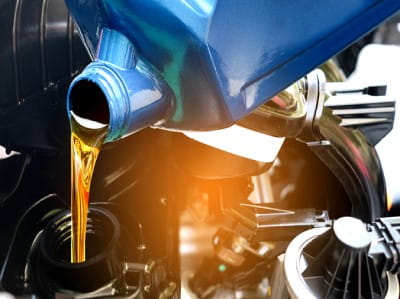John Townsend
Public Relations Manager, DC
O: (202) 481-6820 (ext. 4462108)
C: (202) 253-2171
jtownsend@aaamidatlantic.com
WASHINGTON, D. C. (Monday, June 18, 2018) –– It’s “Hotter than July” smack dab in the middle of June. For the first time since last July, residents of the Washington metro area are experiencing back-to-back days with temperatures over 90 degrees Fahrenheit. It is dubbed the “Father’s Day Weekend Heatwave.” Don’t get us started about the horrendous heat index, the “feel like temperatures,” which will range from 100° to 108° Fahrenheit. Think temperatures, thermometers and heat that has nowhere to go.
The first heatwave of 2018 started on Sunday and will skulk and sizzle around through Tuesday, area meteorologists forecast. No doubt it will exact a toll on human bodies, which cool by sweating or perspiration. This is especially true for elderly area residents over the age of 75, young children, individuals with respiratory and cardiovascular ailments, and drivers and passengers tooling around in cars with air conditioner (A/C) systems beset by weak air flow. It spells misery in stop-and-go traffic.
And to think, the first day of summer is this Thursday, June 21, as the June or Summer Solstice dawns at 6:07 A.M. EDT. So this heat wave packing heat-index values at or above 100 degrees Fahrenheit is merely a precursor or harbinger of hotter things and days to come. If you haven’t prepared your car for the rigors of summertime driving, let this be an object lesson for avoiding breakdowns, blow outs, and blown engine gaskets, advise top-notch certified mechanics at AAA Car Care Centers in the region.
“Keep an eye on the temperature gauges. Extreme temperatures can easily push a vehicle beyond its limits, and excessive heat shortens the longevity of auto batteries,” said James Moore, Manager, AAA Car Care Center. “Unfortunately, many area motorists and their vehicles are not ready for the challenges, nor are they prepared for the risks posed by high heat and humidity, or when it is too hot for too long.”
During heatwaves, overheating is a danger for the human body. Overheating is also the most common cause of automotive breakdowns. Some area drivers will find themselves stranded on the road because of it. Last summer, AAA rescued seven million drivers nationwide. AAA Mid-Atlantic roadside rescuers responded to SOS calls from more than a million motorists, 1,124,824 in all, in Washington, D.C., Maryland, and Virginia during the summer of 2017. All told, the auto club extricated 561,337 drivers in Virginia, 495,551 motorists in Maryland, and 67,937 motorists in Washington, D.C. proper.
“You can bet your last money, SOS calls for roadside assistance to AAA’s switchboard will rise as the temperature rises. As the sun rays strike the Earth at a more direct angle, three of the ‘four most expensive car repair problems,’ can occur during extreme heat, including repairing and replacing a blown motor, a blown head gasket, and a suddenly non-functioning, non-cooling, air conditioner compressor,” said Bruce Jenkins, Manager, AAA Mid-Atlantic Roadside Assistance. “Automobile engines work extra hard in the summer or summer-like heat waves, and it is the cooling system’s job to protect the engine from overheating. When that fails to happen, you end up stranded on the roadside or stalled by the wayside in dire straits awaiting rescue. In this heat, the engine cooling system can fail without warning.”
Washington area residents hold on to their vehicles a long time, and the average vehicle age in the region is 9.27 years. Scorching heat is a vehicle slayer. It has a cumulative impact of vehicle batteries, fans, belts, hoses, radiators, coolant systems, and engine components. Oppressive summer-like heat can kill or zap a car battery 33 percent faster than the cold of winter, advises AAA Mid-Atlantic Roadside Assistance. Extreme heat can accelerate the corrosion of your car’s battery. If your car battery is more than three years old, you are driving on borrowed time. More vehicle batteries fail in July than in January.
Heat kills. “An average of 658 persons” die of heat-related causes each year in the United States. Spending time inside hot cars can prove dangerous for all, and deadly for children left in cars, even with the windows cracked open and even in the shade. Children, the elderly and pets can die within minutes inside a hot vehicle. Twelve children have perished from pediatric vehicular heatstroke so far in 2018, according to NoHeatStroke.org. Other children in hot cars were rendered in extremis. It is against the law in Maryland, and 18 other states, to leave a child unattended in a vehicle. The Maryland family law pertains to a child under the age of eight years. This is punishable in Maryland by fines or imprisonment. However, under Maryland Family Law, §5–801, a child “may be in a vehicle, if an older child,” who is at least 13 years old, “is also present.” Virginia and Washington, D.C. have not promulgated laws on the books concerning parents or caretakers leaving children unattended in vehicles. “Look before your lock!”
“Hot town, summer in the city, back of my neck getting dirty and gritty.” Beware of the manifold dangers of the “urban island effect,” while moving, walking or driving about the nation’s capital and adjoining urban centers and towns, where all that asphalt, concrete, pavement, buildings, sidewalks, parking areas, and infrastructure absorb, trap and retain heat and elevated temperatures. It makes road surface temperatures hotter in the District and cities and towns across the metro area than in surrounding suburbs, or nearby bucolic areas, especially at night. If you are not sweating, it could be a heatstroke sign.
Welcome to “tire blowout season.” It is dangerous. At a granular level, the Washington metro area now boasts 4.1 million registered vehicles, up from 3.89 million in 2014, and the increasing number of vehicles will add more heat to road surface. The hotter road temperature is due in part to the impact of vehicle-related heat fluxes, such as tire frictional heat flux, the heat transfer rate between the left tires and right tires, and vehicle radiant heat. It is a matter of heat on heat. Vehicle tires bear the brunt of the heat.
As the sunlight bounces off area roadways, some motorists will experience optical illusions known as “hot road mirages” or “fake water” that occur when dark asphalt “gets much hotter than the air around it.” Simply put, “hot air on roads bend light, and since hot air rises, it causes the light to shimmer.” As the light shimmers on steamy hot days, it obscures the road surface at the horizon and the refraction of light makes the road look wet in the eye of the beholder driving along the highway. So grab your sunglasses.
Will it be hot enough to fry an egg on the hood of your car? The heat and humidity lurking around will impact vehicles that haven’t been sufficiently maintained, warn automotive technicians at AAA Car Care Centers. Because Washington area residents tend to drive less and shorter distances on weekends than they do during the work week, AAA Emergency Roadside Assistance crews are anticipating a spike in calls starting Monday and into Tuesday morning and night. Put safety first. Drink plenty of water (6 to 8 glasses of water a day for an adult). Stock an emergency car kit especially equipped for summer.
Follow us on Twitter: @AAADCNews
Like us on Facebook: AAA Mid-Atlantic News
Washington, D.C. Mailing Address:
1405 G Street NW
Washington, DC 20005
AAA provides automotive, travel and insurance services to 57 million members nationwide and nearly 78,000 members in the District of Columbia. AAA advocates for the safety and mobility of its members and has been committed to outstanding road service for more than 100 years. The not-for-profit, fully tax-paying member organization works on behalf of motorists, who can now map a route, find local gas prices, discover discounts, book a hotel and track their roadside assistance service with the AAA Mobile app for iPhone, iPad and Android. For more information, visit https://aaa.com
Ragina C. Ali
Public Relations Manager, MD
O: (410) 616-1900 (ext. 4361152)
C: (443) 465-5020
RAli@aaamidatlantic.com







